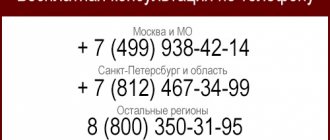The legislation does not regulate the question of the extent to which all residents of an apartment bear debt obligations in the event of non-payment of housing and communal services. There are two types of liability that arise when there are several debtors - joint and several. As a rule, residents who have entered into a social tenancy agreement and members of their families are jointly and severally liable for debts for utility services. Therefore, the requirement to pay debt obligations can be presented to one person.
The concept and reasons for the emergence of joint and several liability
The Civil Code of the Russian Federation (Civil Code of the Russian Federation) defines the concept of joint and several obligation - joint liability of debtors when the subject of the dispute is indivisible. Any housing can be considered indivisible, therefore all residents are equally obliged to participate in the costs of its maintenance and preservation. And if a utility debt arises, residents bear equal responsibility.
Thus, joint recovery is possible in cases where:
- the housing is in common joint ownership and one of the owners does not pay utility bills;
- a social tenancy or rental agreement has been concluded, but one of the tenants has incurred debts for housing and communal services.
The management company (MC) has the right to demand payment in full both from all residents living together and from any of them separately. The debtor who receives a request to pay the full amount is obliged to do so. The remaining residents are exempt from obligations. However, the tenant who has repaid the debt can himself make a demand for payment to the remaining residents.
What is joint debt in 2020
Joint and several responsibility for paying for housing and utilities is borne not only by the owners of residential premises in common joint ownership, but also by force of law, members of the owner’s family. We recommend on the topic: Statement of claim for collection of debt for payment of housing and communal services jointly with the owner and a member of his family.
Below is also an example from judicial practice, when the court, using an analogy of the law, collected jointly (and not in shares) the debt for housing and communal services from the owner and a former member of his family (spouse), who refused to participate in privatization.
Important
Members of the owner's family are jointly and severally liable for paying for housing and utilities: the municipal unitary enterprise filed a lawsuit against three defendants to collect payment for housing and utility services.
Info
In support of the stated claims, it was indicated that the defendant Selyukov V.N.
is the owner of the premises...
What is joint liability and how to avoid it?
Often, residents of the same apartment are not relatives, do not maintain a common household, and their budgets are different, but they receive the same utility bill. In most cases, the amount is paid by each of them in proportion to the occupied premises in the apartment by verbal agreement.
But there are also conflict situations when someone ignores the payment requirement. In this case, conscientious payers need to know how to defend their rights.
The Civil Code of the Russian Federation establishes the following rights and obligations for citizens to whom joint liability applies:
- exemption from payment of debt only if it is fully repaid by the other owner;
- right of recourse to debt payment. The payer has the right to recover damages from the true defaulter;
- participation in costs in proportion to the square meters occupied;
- allocation of a share for each owner;
- acquisition of the defaulter's share by other owners.
Responsibility of Temporarily Registered Persons for Housing and Utilities Debts
The transfer of property into trust management does not entail the transfer of ownership to the trustee, who is obliged to manage the property in the interests of the owner or a third party specified by him. Sincerely, Legal Company LLC" Email:
Possession, use and disposal of land and other natural resources, to the extent that their circulation is permitted by law (Article 129), is carried out by their owner freely, if this does not damage the environment and does not violate the rights and legitimate interests of other persons.4. The owner can transfer his property into trust management to another person (trustee).
Consequences of non-payment of utilities
Even if late payment for housing and communal services occurs for valid reasons, the law provides for sanctions for late payments:
- accrual of penalties in the amount of 1/300 of the refinancing rate of the Central Bank of the Russian Federation (Article 155 of the Housing Code of the Russian Federation);
- suspension or restriction of the provision of services (clause 117 of the Decree of the Government of the Russian Federation of May 6, 2011 No. 354);
- eviction from municipal housing (Article 90 of the Housing Code of the Russian Federation).
In cases where one of the tenants does not pay their share of payments, the management company may demand payment of the full amount from other tenants as joint and several liability. In case of failure to fulfill obligations, the debt is collected forcibly by a court decision, which names all the owners or tenants of the apartment.
How can I find out if I have inherited housing debt?
If the heirs had no idea about the debts of the deceased, they are notified about this:
- A creditor who contacted a notary after the death of the borrower and has information about the debts of the deceased;
- Upon receipt of a subpoena. If the creditor has applied to collect debt from the heirs;
- After contacting a notary. All notaries have access to the credit histories of citizens; this was done so that they could check the property of citizens.
If the heir suspects that the testator has debt obligations, he must first contact a notary. Thanks to this, you can find out the amount of debt and decide whether it is worth accepting the inheritance or whether it is better to refuse it and all debt obligations.
Was the Recording helpful? No 2 out of 2 readers found this post helpful.
How can you divide debts?
When one of the residents of an apartment systematically does not pay utilities, the rest have a question about whether it is possible to divide the rent debt between the residents. The solution to the problem will be:
- division of personal accounts between tenants;
- recovery of damages by the tenant who paid for the services from the defaulter.
The most convenient option is the personal accounts section. This does not affect ownership in any way, but involves a separate charge from the service provider for each resident.
A financial and personal account is issued for residential premises and contains information about:
- home improvement;
- technical characteristics of living space;
- provided utilities;
- all owners or tenants.
As a rule, personal accounts are separated if the housing has several rooms and the kitchen area is at least 6 m2.
If all residents agree with the division of payment, you must contact the management company:
- for tenants under a social tenancy agreement, this will entail the termination of the agreement and the conclusion of a new one with each of the tenants;
- for homeowners, in accordance with Art. 247 of the Civil Code of the Russian Federation - concluding an agreement on payment for housing and communal services with each owner in proportion to the share in the apartment and a separate agreement for payment.
If it was not possible to reach an agreement on payment for utilities between residents, the dispute over separate payment is resolved in court.
Opportunities and consequences of restructuring debts to housing and communal services
- Loss, significant reduction in recurring income.
- Loss of a job due to dismissal, reduction, or liquidation of the employer.
- Death of one of the family members leading the common household.
- Fulfillment of military duty.
- Retirement age is approaching.
- Loss of ability to work as a result of illness, injury, natural disaster, or disability.
- General economic situation in the country of residence (price increases, unemployment, currency exchange rate fluctuations, etc.).
- Increase in the number of dependents.
- Other life circumstances of the consumer.
The standard form of agreement between the supplier and the consumer on the revision of the terms of fulfillment of obligations can be requested for review in the legal department of the service company, viewed on the official website, or drawn up independently using Internet resources. The number of contract or agreement forms to be signed is a multiple of the number of participants in the procedure.
We recommend reading: Help for Beginning Entrepreneurs in Surgut for Combat Veterans
Shared debt repayment
Joint liability for utility debts is provided for residents whose apartment is jointly owned, and citizens own property without a clear delineation of shares. But in some cases, by agreement between residents or by court order, a part of the apartment is allocated for everyone or only for the defaulter.
The division of housing is carried out in two ways:
- in kind - the owner receives possession of a separate room;
- ideally, the share in the apartment is not tangible, but the ownership right is divided among everyone, for example, three owners each receive 1/3 of the apartment.
The accumulated amounts of debt before the allocation of part of the apartment are paid jointly and severally. But after the allocation of shares has occurred, if there are rent debts, only the owner of this part of the housing is responsible for them.
In some situations, even after allocating a share in the apartment or dividing personal accounts, the problem tenant does not pay for housing and communal services. Such debts can no longer be recovered from former owners/bona fide payers. Therefore, management companies submit documents for trial to the court, which:
- consider the reasons for the debt;
- will find out whether the housing is the only one for the defaulter.
After receiving a court decision, if the shareholder does not pay for utilities and the amount of debt has reached the cost of part of the apartment, the bailiffs will offer the remaining co-owners to purchase his share. But this extreme measure is applicable only after identifying the following information:
- the defaulter does not have enough money in his accounts, deposits, or deposits with banks to repay the debt;
- there is no other property from which the debt can be paid.
The process of foreclosure on part of a debtor’s apartment has many nuances and largely depends on how the share was allocated.
How to avoid paying other people's debts for utilities and housing services
The simplified procedure for collecting debts for utilities and housing services has led to the fact that everyone, even those who pay accurately, may face a certain amount being written off from their bank account. Why and how to protect yourself from unpleasant surprises?
Medvedev gave instructions to complete the construction of problematic facilities
Former family members of the owner and family members living together are jointly and severally liable for debts. “For example, an apartment belongs to a grandmother, and children and grandchildren are registered in it,” explains Igor Kokin, an expert at the Higher School of Public Administration at RANEPA.
“A debt has accumulated; according to the law, the owner must pay it, but the creditor may ask everyone living in the apartment to pay jointly.” At the same time, not everyone lives at their registered address, but in this case the fact of residence does not need to be confirmed.
Registered means you live, and therefore are obligated to pay off the housing and communal services debts that have accumulated behind the apartment. There is only one way to protect yourself - to register strictly at your place of actual residence.
I'm out of luck
It is equally dangerous to own property together with people who may not pay for utilities and housing services. Creditors - management companies, suppliers of heat, water and electricity - do not delve into exactly which of the owners has accumulated debts.
Such situations often occur in communal apartments or in apartments that, after a divorce, are divided between spouses, but only one of the former spouses lives in the joint living space.
There is only one way out - to distribute areas of responsibility, that is, current accounts. This can be done in two ways: by directly contacting the management company, HOA, resource supply organizations, and in case of refusal, going to court.
Paid like a neighbor
A common practice of management companies is to assign the debts of some owners who do not pay to those who do. This trick is hidden in the house maintenance payments. Every month, demanding a detailed report from the management company about where the funds received for the maintenance of the house went is quite troublesome. The easiest way to avoid paying bills for your neighbors is to switch to direct contracts.
No apartment, have debts
Alas, the most conscientious apartment owner can face being cut off from the benefits of civilization due to debts. photoxpress
Often you have to pay off other people's debts after selling an apartment. The new owner must re-register the personal account in his name and inform all resource providers that the apartment has changed owner. But not everyone is so conscientious. As long as there are no debts, no one is interested in formalities. But as soon as they arise, the management company goes to court and recovers money from the one who is listed as the owner. Everything happens quickly, the court makes a decision, it is handed over to the bailiffs, and the money leaves the debtor’s account. At the same time, the court and bailiffs do not check information about the owner of the property; they believe the information of the Criminal Code.
Igor Kokin advises in this case to complain to the state housing inspectorate about the Criminal Code. “Management companies are required to maintain an up-to-date register of owners according to the Housing Code; if they do not do this, this is a violation of licensing requirements,” explains Kokin.
It is curious that in such cases the former owner is warned about legal proceedings, but at the old address. This order of things leaves a person without a chance to notice the violation in time. The only thing we can advise is to periodically check the website of the bailiff service to see if you owe any debt.
Property with a tail
The buyer is no less at risk. He can also pay off the debts of the previous owner if the management company decides not to go into details.
The new owner is not responsible for the debts of the previous owner. The only exception is contributions for major repairs, notes Igor Kokin. But this is only in theory. But in practice, blatant violations occur. On numerous forums, unlucky owners of new apartments tell how, when buying a home, they did not pay attention to receipts for utilities, and they turned out to be unpaid.
At the same time, utility workers do not want to go into details, they demand that the new owners pay money and threaten to turn off water, electricity and other troubles. “This is a Soviet habit of thinking that the account is tied to the apartment, in fact it is tied to the owner. And the new home owner should not have to pay for the previous owner,” says Kokin.
How to legally save on rent
What to do if management companies, as well as resource suppliers, threaten to disconnect you from the benefits of civilization? Immediately after registering ownership, it is necessary to notify all service organizations about the change of owner and re-issue personal accounts for service. Conclude an agreement with the management company or HOA. If the house is under the direct management of resource supply organizations, then you will have to go around all suppliers - energy, water and heat - and renew the contract with them.
If you purchase an apartment with debts, it is recommended to send an application to the housing office (other service organizations) stating that you have paid all utilities since the moment you purchased the apartment and you have no debt. The application should be accompanied by copies of the purchase and sale agreement for the property, a certificate of registration of title, meter readings at the time of purchase of the apartment and all paid receipts.
Judicial decisions on joint and several recovery
Requests for payment of housing and communal services debts are considered at the place of residence of the debtors. If the amount of debt is up to 500,000 rubles, the application is considered by order without calling the parties, with subsequent notification of defaulters about the execution of the court order.
Conflict situations most often occur when the owners or tenants are strangers who have received the right to housing as a result of inheritance, donation or other means.
As a rule, payment for utilities occurs separately by verbal agreement between residents. Therefore, you can find out that there is a housing and communal services debt for several owners only after receiving a court order.
Practice shows that when collecting jointly and severally, owners often do not agree with the amounts presented and seek to send their objections in order to cancel the document. However, there are not many chances to achieve this, because the Civil Code of the Russian Federation provides for the only basis for releasing defendants from the obligation to pay - full repayment of the debt by one of the owners or tenants. In this regard, decisions are most often made to jointly collect debts for utility services.
Virt laser
- hand over the document in person and receive a receipt. This method is the most reliable, but often difficult to implement;
- use the postal service by sending a registered letter with acknowledgment of delivery to the addressee;
- use e-mail, however, this method is the least reliable, since not all judges accept a computer printout as evidence.
What are the payment terms?
- Before payment, you must verify all specified data;
- You need to pay exactly the amount indicated in the document;
- Inaccuracies and corrections must not be allowed, because the document becomes invalid.
Judicial debt collection is necessarily preceded by the above measures:
First of all, it is advisable to collect payment receipts for previous months, if they are in paper form. You can also use the electronic form and print it. It is always important to collect receipts together, because housing and communal services organizations, unfortunately, often make mistakes. Situations often arise when you have to defend your case and seek recalculation for various services.
How to sell an apartment?
Each municipal entity deals with housing and communal services independently, relying only on a number of general federal provisions. In particular, each municipality determines the list of services included in the ENP. This is determined by many factors, primarily the position of the organization itself, which supplies resources.
The new system must take into account all the nuances, otherwise problems will certainly arise during the work process. In particular, it must take into account the benefits that are available to certain categories of citizens. Because of this, bureaucratic difficulties often arise and recalculation is required.








